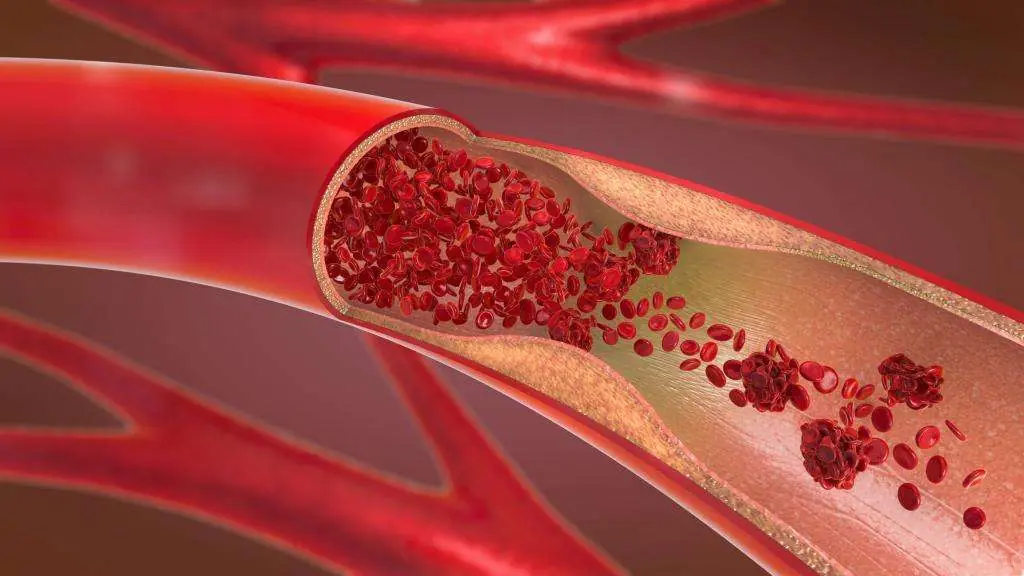
If Your Hands Keep Falling Asleep, It Might Be a Warning Sign of...
Have you ever woken up in the middle of the night with a tingling sensation in your hands, almost like tiny pins and needles poking your skin? While occasional numbness can be harmless and temporary, especially if you’ve been lying in an awkward position, frequent or unexplained episodes of your hands "falling asleep" could be a warning sign of an underlying health condition that shouldn't be ignored.
One of the most common causes of hand numbness is carpal tunnel syndrome. This condition occurs when the median nerve, which runs through the wrist, becomes compressed. People who perform repetitive tasks with their hands—such as typing on a computer, using tools, or even playing musical instruments—are at higher risk. The symptoms often begin gradually and include tingling, numbness, and sometimes weakness in the hand, especially the thumb, index, and middle fingers. If left untreated, it can lead to permanent nerve damage.
Another potential cause is nerve impingement in the neck or spine. Conditions like herniated discs, spinal stenosis, or even poor posture can put pressure on nerves that extend down to the arms and hands. This type of compression can result in tingling, numbness, or even sharp pain in the hands. It's important not to overlook these symptoms, as they could be related to more serious spinal problems that require medical attention.
Diabetes is another major health issue that can cause numbness in the hands. People with diabetes are at risk of developing diabetic neuropathy, a condition where high blood sugar levels damage the nerves throughout the body. When this happens, patients may feel numbness, tingling, or burning sensations, especially in the hands and feet. Managing blood sugar levels through medication, diet, and exercise is crucial to prevent long-term damage.
In some cases, hand numbness can be a sign of circulatory issues. If the blood flow to your hands is restricted, it can cause them to feel cold, tingly, or numb. Conditions like Raynaud’s disease cause blood vessels in the fingers and toes to constrict excessively in response to cold or stress, leading to numbness or color changes. More seriously, a blood clot or blocked artery could cause sudden and severe numbness, which would require immediate emergency care.
Less commonly, hand numbness may indicate multiple sclerosis (MS) or stroke. MS is a chronic autoimmune condition that affects the brain and spinal cord, and numbness in the hands is often one of the early symptoms. A stroke, on the other hand, can cause sudden numbness or weakness on one side of the body, including the hands. If this occurs, especially with slurred speech or facial drooping, it’s a medical emergency.
So, when should you worry? If the tingling or numbness in your hands happens frequently, lasts for long periods, occurs without obvious cause, or is accompanied by other symptoms like weakness, pain, or loss of coordination, it's time to consult a healthcare provider. A doctor can perform tests, including nerve studies or imaging, to determine the root cause and recommend appropriate treatment.
In conclusion, while an occasional "sleeping hand" might seem harmless, persistent episodes should not be ignored. They may be your body’s way of alerting you to conditions ranging from mild nerve irritation to serious chronic diseases. Early diagnosis and treatment can prevent complications and improve your quality of life. So the next time your hands fall asleep without a clear reason, listen closely—your body might be trying to tell you something important.
News in the same category


14 Early Warning Signs Your Body Needs Magnesium Immediately and How to Get It

How to Improve Blood Circulation Naturally (Research Based)

5 Deficiencies Almost Everyone Has (And Doesn’t Know About)

Scientifically Proven Health Benefits of Cayenne Pepper

7 Thing That Happen To Your Body When You Stop Having Intimacy Moments
Taking a break from intimacy doesn’t mean something is wrong. In fact, it can be a time for growth, healing, and self-discovery.

P@rasite Found In Br@in Of 10-Year-Old Girl After Eating Undercooked Meat Leaves Experts Horrified

5 Common Foods That Turn Toxic If Left Overnight

The Hidden Meaning Behind Leg-crossing — It’s More Than Just Comfort

HealthWhy Kidney Failure Is Striking The Young—And How To Stop It

ScienceScientists Found The Hidden Factor Behind the Global Infertility Crisis, And It’s Terrifying

12 Remarkable Health Benefits of Ginger

17 Best Bedroom Plants for Clean Air & Low Light – NASA Study

Early Signs of Liver Damage & How to Strengthen Your Liver

'Healthy' man reveals only sign of bowel cancer he noticed in bathroom - and it wasn't bl00d in the loo
When 38-year-old Dave Paxton noticed his stool had turned darker than usual, he had no idea this small sign would lead to a devastating cancer diagnosis—one so rare that only 22 people in the world have ever had it.

Purslane (Portulaca Oleracea): The Weed with Extraordinary Benefits (Science Based)

Consciousness Is Not Confined to the Brain, But Is Connected To The Whole Universe, Scientists Say

After Surviving 800 Snake Bites, This Man’s Blood Could Be the Universal Antivenom the World’s Been Waiting For

10 Warning Signs It’s Time to Cut Back on Caffeine
News Post

10 Early Warning Signs You’re Being Exposed to Mold Toxicity (Millions Are Exposed Every Day)

14 Early Warning Signs Your Body Needs Magnesium Immediately and How to Get It

British Mom Who 'Died' For 17 Minutes After Workout Shares What She Witnessed

Dealing with 10 Common Bathroom Pests

How to Improve Blood Circulation Naturally (Research Based)

5 Deficiencies Almost Everyone Has (And Doesn’t Know About)

Scientifically Proven Health Benefits of Cayenne Pepper

Free download offered to PlayStation gamers as way to 'make amends'

Chaos following discovery of radioactive wasp nest at former US nuclear weapons site

Beyond the Badge: One Officer’s Journey to Becoming More Than a Uniform.

7 Thing That Happen To Your Body When You Stop Having Intimacy Moments
Taking a break from intimacy doesn’t mean something is wrong. In fact, it can be a time for growth, healing, and self-discovery.

From Suspension to a Second Chance: How One Principal Changed a Life Forever.

The Hawk on the Porch: A Quiet Cry for Help.

I Filed for Divorce After Catching My Husband Cheating – Our Son's Words in Court Left Everyone Speechless

My Selfish Sister Stayed by Mom's Side When She Fell Ill, but Everything Changed after the Doctor Shared Mom's Last Words – Story of the Day

My SIL Gave Me Her Old Armoire and Made Me Pay for Moving It – Then She Came with an Outrageous Demand

The Meteor That Changed Two Lives: A Story of Unlikely Family

P@rasite Found In Br@in Of 10-Year-Old Girl After Eating Undercooked Meat Leaves Experts Horrified
